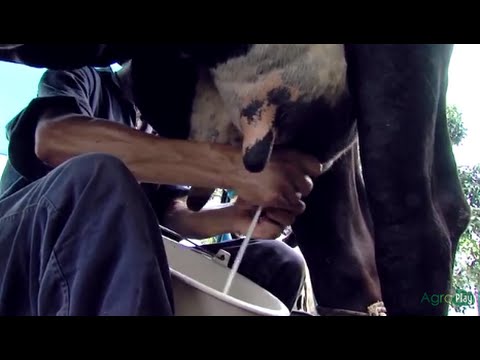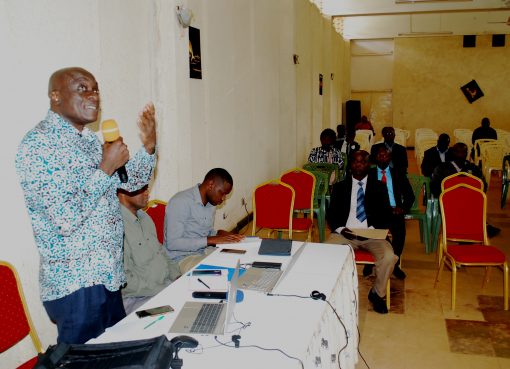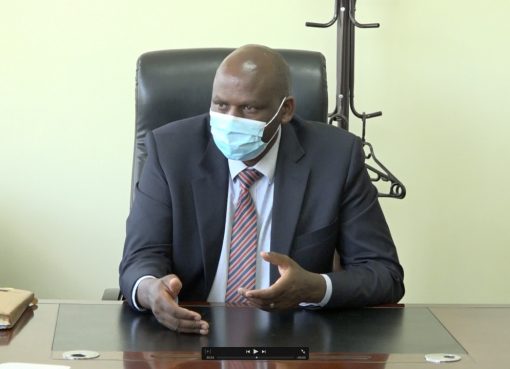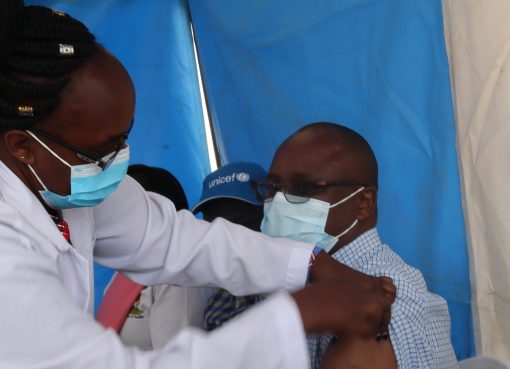Nakuru is set to benefit from a Sh 200 million initiative that aims at transforming the devolved unit’s informal dairy sector, which accounts for about 70 percent of the county’s milk supply.
The four-year initiative rolled by the Kenya Dairy Board (KDB) and the International Livestock Research Institute (ILRI) funded by Bill & Melinda Gates Foundation and UK Foreign, Commonwealth and Development Office (FCDO) targets to improve milk safety and quality in Kenya’s informal dairy sector.
Livestock Fisheries and Veterinary Chief Officer Dr Michael Cheruiyot said the County Government’s long-term vision was to have a formalized dairy sector in Kenya that provides safe milk and contributes to nutrition security, health and economic growth.
The More Milk for Lives and Livelihoods (More Milk 2) initiative is expected to deliver significant changes, including improved milk safety standards, increased regulatory compliance, and greater participation of informal businesses in regulated markets.
“It will also empower consumers by increasing demand for safer, high-quality milk and strengthen gender equity by fostering collaboration between men and women in the informal sector,” said Dr Cheruiyot.
The Chief Officer explained that the four-year project seeks to empower small-scale dairy businesses with the tools to meet regulatory standards, enhance market access and promote safer, high-quality milk production.
He noted that the informal dairy sector plays a critical role in the nation’s economy and nutrition, providing affordable milk to millions of households.
Dr Cheruiyot noted that dairy vendors serve as trusted ambassadors for nutrition, health and food safety in their communities.
“Despite their important role in society, they face significant challenges, including lack of adequate support, inability to adhere to best milk handling practices and regulatory requirements and difficulties to check and maintain product quality and safety,” he said.
Speaking during a consultative workshop ahead of the roll out of the initiative the Chief Officer disclosed that the project will benefit small-scale dairy businesses in Nakuru, Nyandarua and Uasin Gishu counties.
The 4-year program targets to benefit 450 informal and small business vendors in the three counties. It will address current challenges by improving milk handling practices and ensuring regulatory compliance while empowering vendors to thrive, and enhancing consumer trust.
“This scheme will support their gradual transition into certified enterprises that offer safe and quality dairy products. Through capacity building, incentives for change and fostering an enabling environment, we are committed to supporting small and medium dairy enterprises,” he said.
“We believe that providing the necessary training, technology and access to resources can uplift the entire dairy sector, ensuring healthier and safer milk for all Kenyans,” Dr Cheruiyot added.
Dr Cheruiyot said KDB and ILRI partnership with county governments demonstrates that the milk sector holds potential, and it can be used to transform economic development, empower women and build a resilient society.
The initiative aims to enhance milk safety, regulatory compliance and market access for small dairy businesses.
Dr Cheruiyot observed that Kenya is a top producer of milk in the continent with an annual production of 4.6 billion liters. Kenya is also leading in the per capita milk consumption with each Kenyan consuming an average of 86.1 liters per year.
“We are processing about one billion liters of milk annually with 85 percent of it being Ultra High Temperature (UHT) and fresh milk with 0.1 percent going to high value products like ghee, cheese and butter leaving us to supplement the demand for the high value products through importation,” said the Chief Officer.
He highlighted that the high value milk products offer an opportunity for vendors and small-scale informal dairy businesses to venture into and regularize their businesses.
He added that Kenya’s informal dairy sector, which accounts for about three quarters of the country’s milk supply, is set to undergo a major transformation with the launch of the more milk for lives and livelihoods in Kenya initiative.
Dr Cheruiyot indicated that Governor Susan Kihika’s administration’s long-term vision is to have a formalized dairy sector that provides safe milk and contributes to nutrition security, health, and economic growth with the ‘MoreMilk 2’ being an essential step towards achieving this vision.
The official said that this scheme will support gradual transition of small-scale informal dairy businesses into certified enterprises that offer safe and quality dairy products targeting small-scale dairy businesses in Nakuru, Nyandarua and Uasin Gishu counties.
He highlighted that the initiative will address current challenges by improving milk handling practices and ensuring regulatory compliance while empowering vendors to thrive, and enhancing consumer trust.
“The initiative aligns with Kenya’s Bottom-Up Economic Transformation Agenda (BETA), which identifies dairy as a priority value chain for development. The project intends to create a business case that demonstrates the feasibility of scaling up to support the government’s objective of increasing milk sales through regulated markets from less than 20 percent to 50 percent,” said the Chief Officer.
The informal dairy sector in Kenya plays a critical role in the nation’s economy and nutrition, providing affordable milk to millions of households.
Informal dairy vendors serve as trusted ambassadors for nutrition, health, and food safety in their communities. Despite their important role in society, they face significant challenges, including lack of adequate support, inability to adhere to best milk handling practices and regulatory requirements and difficulties to check and maintain product quality and safety.
The project aims to encourage consumers to buy from trusted and compliant businesses while empowering informal dairy operators to access new operations.
The project builds on the success of the MoreMilk 1 project, which generated research on how informal milk markets can improve nutrition and health in peri-urban settings.
Kenya’s informal dairy sector is the backbone of milk supply for millions, providing affordable and nutritious dairy products while sustaining livelihoods across the dairy value chain.
But the sector faces significant challenges, including inconsistent quality standards, food safety concerns and regulatory bottlenecks, which limit its economic potential.
The MoreMilk 2 initiative is designed to mitigate these challenges through targeted interventions in Nakuru, Nyandarua and Uasin Gishu, three of Kenya’s top milk producing counties.
Dr Cheruiyot explained that the four-year initiative is expected to Improve the safety of unpackaged milk sold by small businesses in Kenya by empowering dairy vendors with business skills, safe milk handling practices and regulatory knowledge to help them scale their businesses.
It is also envisioned that it will promote gender inclusion by offering targeted support to enhance women’s participation and economic opportunities and strengthen collaboration between dairy farmers, vendors, regulators and policy makers to create a more structured and resilient dairy sector.
Informal milk markets are more popular than formal ones for several reasons – they are better able to provide goods that meet socio-cultural expectations on quality besides selling their milk cheaper than the formal market.
But the sector faces significant challenges, including inconsistent quality, food safety concerns and regulatory bottlenecks, which limit its economic potential. “We aim to create a more inclusive and efficient dairy sector by addressing market access and milk safety concerns,” said the Chief Officer.
The project also aims to promote gender inclusion by enhancing women’s participation and economic opportunities, besides strengthening collaboration between dairy farmers, vendors, regulators and policy makers.
It is designed to improve livelihoods, empower small-scale vendors and ensure that Kenyan households have access to high-quality milk.
By Jane Ngugi





